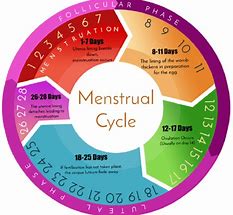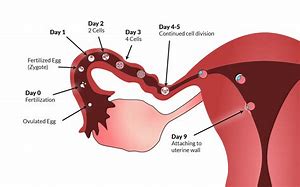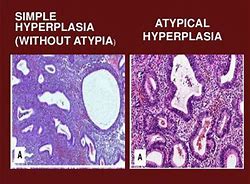Normal Endometrial Thickness VS Endometrial Thickening
Endometrial thickness varies with the menstrual cycle, and some women experience thickening or thinning of the endometrium. In fact, endometrial thickness is not a fixed number, is a change with the body, and some diseases will lead to endometrial thickness, so today we have to understand the endometrial thickness issue as a whole.
Normal thickness of endometrium
The normal range of endometrial thickness in the proliferative phase: The endometrium is very thin on about the 5th to 9th day of the menstrual cycle.

Normal range of endometrial thickness in the secretory phase: On the 15th to 19th day of menstruation, i.e., 1 to 5 days after ovulation, the endometrium continues to thicken and the glands further enlarge and bend. On the 20th to 24th day of the menstrual cycle, 6 to 10 days after ovulation, the endometrium shows a high degree of secretory activity, and the curvature and expansion of the gland reach a peak. In the late secretory phase, the thickness of the endometrium is about 5 to 6 mm.
The normal range of endometrial thickness in the premenstrual period: The thickness of the endometrium is reduced by 1/5 to 1/3 on the 25th to 28th day of the menstrual cycle, 11 to 14 days after ovulation.

The normal range of endometrial thickness during menstrual period: The main changes are bleeding and shedding of the endometrium on about the 1st to 4th day of the menstrual cycle.
About Endometrial Thickening
Symptoms of Endometrial Thickening: The symptoms of endometrial thickening are mainly divided into symptoms of acute endometrial thickening and symptoms of chronic endometrial thickening.
Acute Endometrial Thickening Symptoms & Physical characteristics: Lumbosacral pain, backache, lower abdominal pain, bearing-down pain and other symptoms.

Chronic Endometrial Thickening Symptoms & Physical characteristics: Generally manifested as backache, abdominal pain which is more obvious, increased leucorrhea, and some accessory inflammation, leucorrhea in yellowish or yellow-green color, there is bearing-down pain.
Treatment of Endometrial Thickening
Principles of western medicine: Medical treatment or surgical treatment. First judge whether there is polycystic ovary, ovarian functional tumor or other endocrine dysfunction. Medication are: ovulation drugs, progestogen drugs, danazol and so on.
TCM treatment principles: The use of traditional Chinese medicine for the treatment of Qi stagnation syndrome. Natural herbs should be used to remove blood stasis and regulate menstruation. TCM believes that it is the internal resistance of congestion and blood spillage from the meridian. Endometrial thickening is caused by Qi stagnation and blood, so the symptomatic medicine is Fuyan Pill.

Fuyan Pill is a complete formula with powerful effect, and no side effects, is considered as the natural approach for endometrial thickening. It works mainly to clear away heat and toxic substances, promote blood circulation and remove blood stasis, activate Qi and relieve pain.
With the elimination of inflammation, other symptoms also gradually disappear, so that endometrial thickness returned to normal range. Because Fuyan Pill has its unique efficacy on inhibition of residual lesions, it can effectively inhibit proliferation and prevent recurrence.
How Endometritis Should be Treated: Etiologic Analysis & Therapeutic Resolution
previous pageCan Ureaplasma urealyticum Cause Endometritis
next page
You may also be interested in
- Where Can Endometrial Tissue Ectopically Occur?
- Can Adenomyosis Be Misdiagnosed as Endometrial Cancer?
- Oral contraceptive pills protect against ovarian and endometrial cancer
- Endometrial hyperplasia occurs after menopause is a problem cannot be ignored
- The Cause of Endometriosis -- Endometrial Implantation Theory
Testimonials
- Adenomyosis with Ureaplasma Urealyticum Cured by Fuyan Pill
- Tubal blockage with hydrosalpinx can be cured by TCM shortly
- Fuyan Pill Helps A woman with Adenomyosis Get Pregnant
- A Woman with Hydrosalpinx Is Cured with Fuyan pill
- Pelvic Inflammatory Disease Testimonials
- Irregular Vaginal Bleeding and Endometrial Thickening Cured by Fuyan Pill
- Pruritus Vulvae and Frequent Urination: Mycoplasma Infection Cured after 2 Courses



